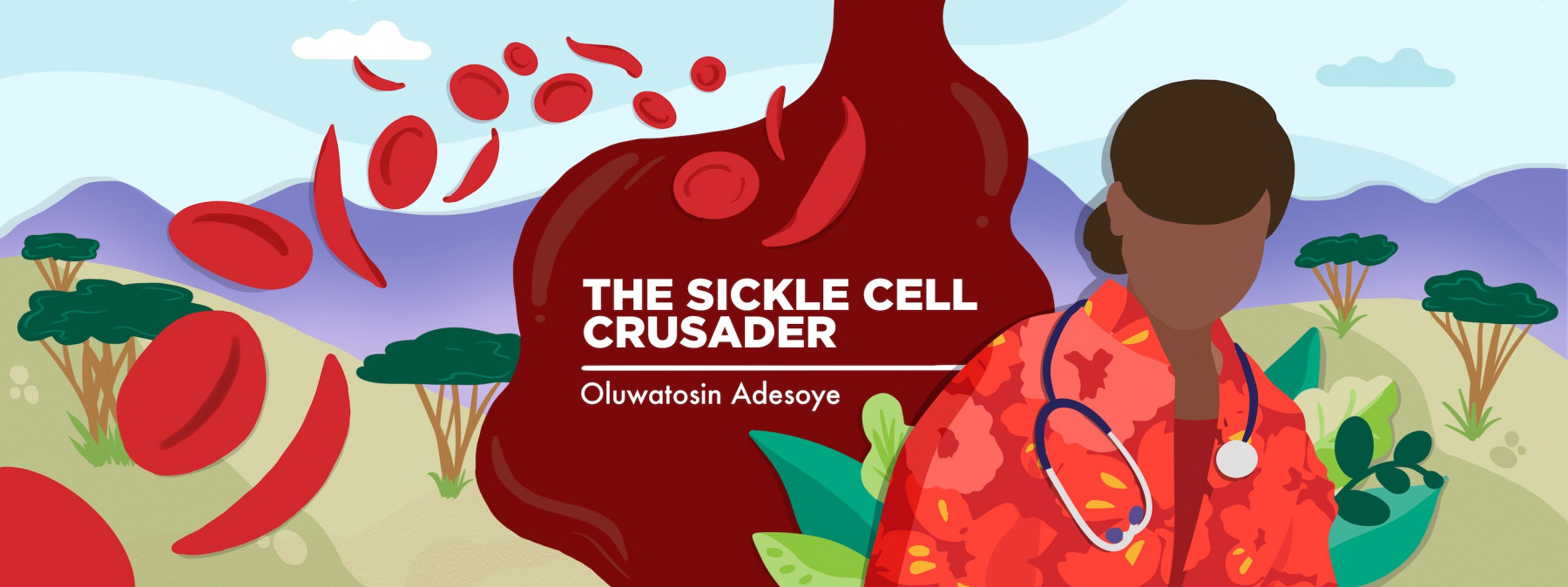Removing financial barriers to treatment for sickle cell disease
Advancements in treatment are exciting, but not if patients can't access them
Written by |

In the past, I would eagerly anticipate news of drug approvals for the management of sickle cell disease. The potential of new medications usually offered a glimmer of hope for sickle cell patients like me. The possibility that they could improve management of the disease and positively affect the lives of people across the world would fill me with excitement.
A few years back, I vividly recall the immense joy I felt upon hearing about the approval by the U.S. Food and Drug Administration of two such drugs. The news made me optimistic and hopeful for the future. But my enthusiasm quickly dampened when I learned how much they would cost.
Recently, the U.K. Medicines and Healthcare products Regulatory Agency conditionally approved Casgevy (exagamglogene autotemcel), a revolutionary gene-editing therapy for sickle cell disease. Approval in the U.S. could soon follow. But my reaction this time around has been markedly different than it was in the past.
While I received numerous notifications via email and social media about Casgevy’s pending approval, I was hesitant to open any articles about it. I did so only after it had been approved in the U.K., when I heard discussions about its cost.
Missed opportunities?
What I learned left me dumbfounded. According to the journal Nature, the exact price of Casgevy hasn’t been determined yet in the U.K., but estimates suggest it could cost about $2 million per patient, which is similar to other gene-editing therapies.
It’s important to note that globally, tens of millions of people live with sickle cell disease. Sub-Saharan Africa, a region that faces harsh economic realities, has the majority of cases, accounting for nearly 80% of sickle cell births worldwide, according to the journal Hematology/Oncology Clinics of North America. If these treatments are not both affordable and accessible to the majority of patients, we will have failed at effectively combating the challenges of this disease.
Casgevy does indeed represent a significant advancement in the treatment of sickle cell disease, because it could potentially reduce the need for bone marrow transplants. With Casgevy, the complex challenge of finding a matching donor for new bone marrow is overcome by eliminating the need for a donor. Instead, with gene editing, patients can produce cells that counteract the sickling effect.
But the staggering cost associated with this type of treatment raises concerns. How can someone living with sickle cell disease improve when these treatments are financially unattainable? When do we get therapies that genuinely benefit the entire sickle cell disease community?
Aside from the cost, the new gene-editing therapy has additional challenges. The treatment is complex, often requiring blood transfusions and chemotherapy, which can have side effects. Furthermore, its complexity could result in a longer treatment timeline for patients. Because it is a relatively new therapy design, potential long-term side effects are unknown due to study duration limits.
Yet despite these challenges, the potential benefits of this treatment are significant. If working properly, it would mean that sickle cell patients could enjoy a life free from sickle cell crises and other complications, leading them to improved overall health.
I believe it is crucial for international health organizations, governments, and nonprofit organizations to prioritize the well-being of sickle cell patients globally. It is imperative for sickle cell disease to receive the same level of attention and resources as infectious diseases like tuberculosis (TB), HIV, and malaria. Similar to the establishment in 2002 of the public-private partnership known as the Global Fund to combat HIV and TB, we need a comparable initiative to address the challenges posed by sickle cell disease.
In the first decade after its creation, the Global Fund disbursed more than $19 billion to 151 countries, which led to significant progress in the fight against these three diseases. It is because of this initiative that treatment for HIV and TB is provided free of charge in many countries today.
To ensure comprehensive care for sickle cell patients worldwide and enhance their quality of life, we require similar funding and partnerships dedicated to sickle cell management.
While it is undoubtedly positive to witness advancements in treatments and a potential cure for sickle cell disease, it is imperative that these treatments are both affordable and accessible to the patients around the world who need them. Without addressing this crucial point, the ultimate goal of enhancing quality of life and improving life expectancy for sickle cell patients will be missed.
Note: Sickle Cell Disease News is strictly a news and information website about the disease. It does not provide medical advice, diagnosis, or treatment. This content is not intended to be a substitute for professional medical advice, diagnosis, or treatment. Always seek the advice of your physician or other qualified health provider with any questions you may have regarding a medical condition. Never disregard professional medical advice or delay in seeking it because of something you have read on this website. The opinions expressed in this column are not those of Sickle Cell Disease News or its parent company, Bionews, and are intended to spark discussion about issues pertaining to sickle cell disease.







Dayo
100%!!